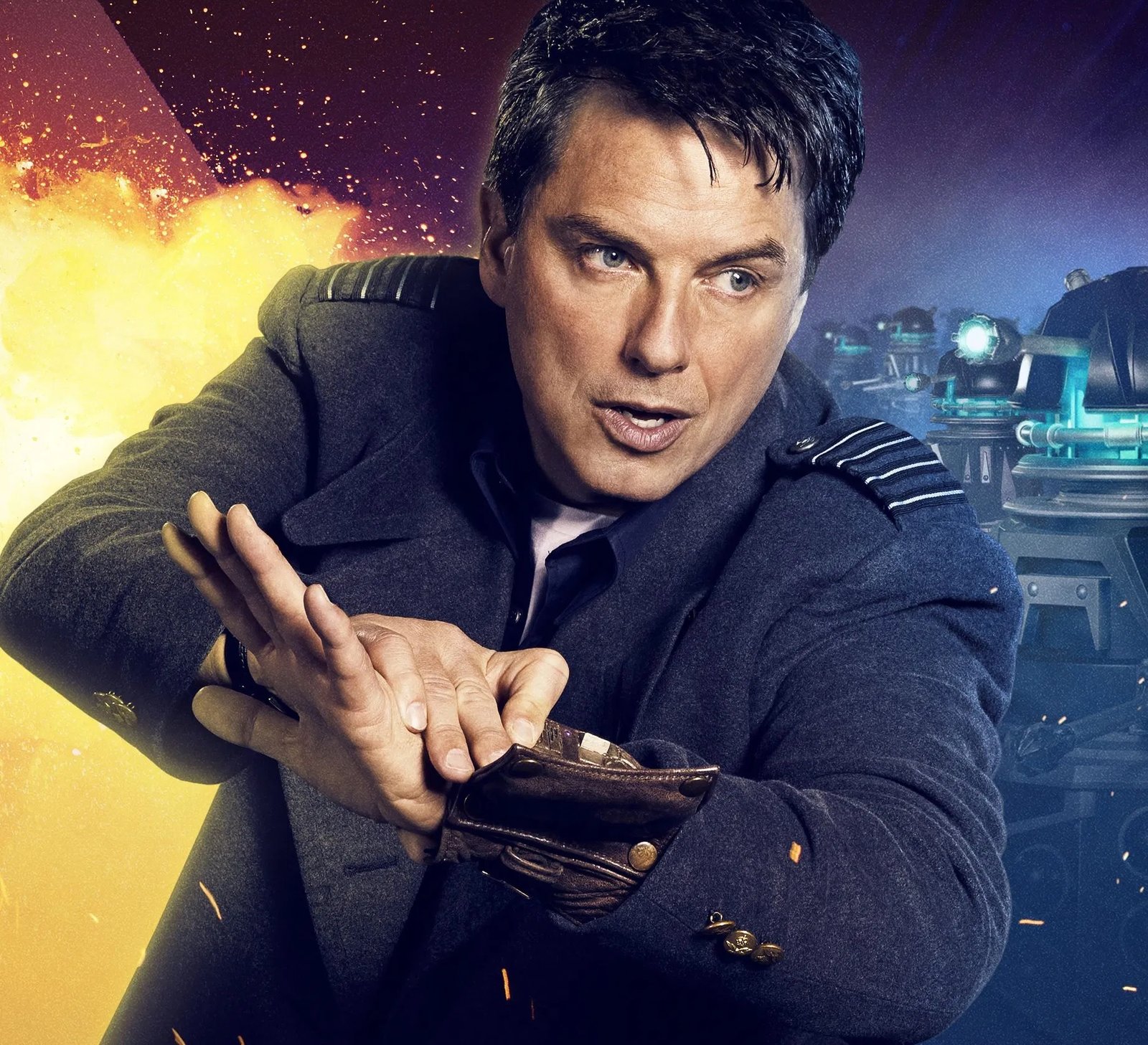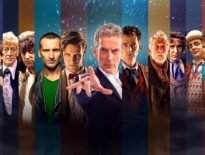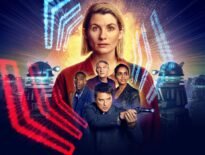As you may have noticed from my avatar, I’m a bit of a fan of Gerry Anderson’s finest hour: Captain Scarlet and the Mysterons.
It’s the television series that was my first love. I spent most of my primary school’s playtimes being Captain Scarlet, and my Dinky-toy SPV is one of the earliest Christmas presents I can remember. Captain Scarlet and the Mysterons was a flashy, colourful (although we only had a black and white telly when I was in primary school, but you know what I mean), and thrilling series with a terrific theme song, superb hardware, and fantastic model work. Tiny me was in awe. Oh, and the staccato beat; mustn’t forget the staccato beat.
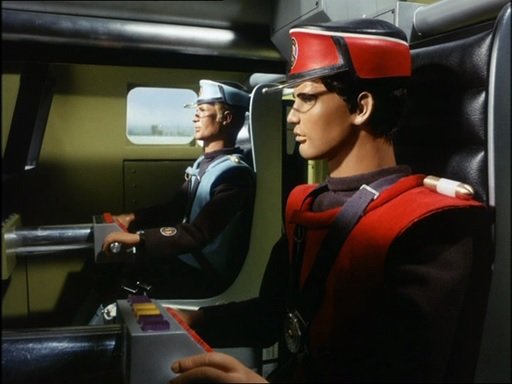
Captain Scarlet is still watchable over 50 years after they were made and they still look very good now. It’s a shame that no Gerry Anderson puppet series was as good after Scarlet: Joe 90 and The Secret Service just didn’t have that special something that Scarlet had, but much of that dark storytelling returned with the live action – and more adult – UFO. But I’m drifting away from the point…
The premise of the Captain Scarlet charater was a Spectrum agent whom the Mysterons killed in a car crash, was reconstructed by the Mysterons, and who, through fate, had his human consciousness returned and developed an extra power of retro-metabolism or indestructibility.
Captain Jack Harkness, similarly, was killed by the Daleks, and was brought back to life by Vortex Rose but with added immortality; or to put it another way, indestructibility.
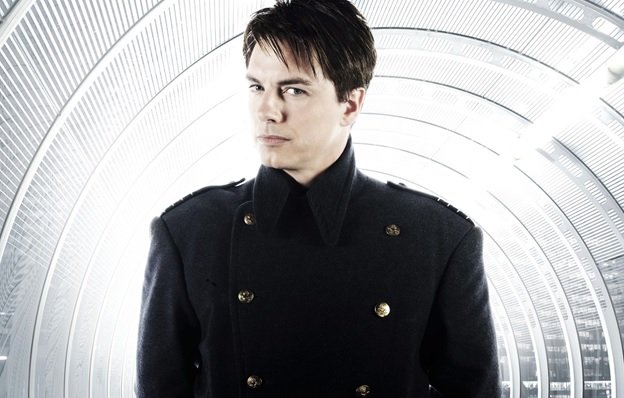
That indestructibility itself is a little bit of a problem for action-adventure storytelling. The character becomes undramatic. In other words, there is no jeopardy as the character cannot be killed. The events of The Timeless Children has brought the Doctor into this little club of immortals too. What is the point of the narrative, in dramatic terms, if the main protagonist is threatened or in peril, when that peril is no threat to them?
And the recent Revolution of the Daleks had two of ‘em!
This was a problem that I picked up on, at a very early age. Being an avid reader of anything Spider-Man during the late 1970s, I begged my dad to take me to see the cinema release of the Nicholas Hammond Amazing Spider-Man TV pilot. While watching in the Wimbledon ABC, I just sat there wondering where all the super-villains were: where were Sandman, Mysterio, Doctor Octopus, the Vulture, or the Green Goblin?
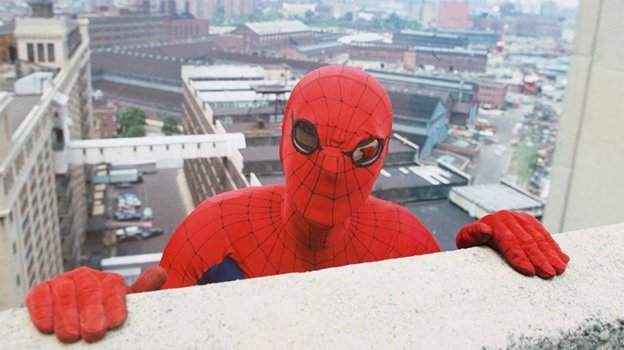
Lou Ferrigno’s The Incredible Hulk did the same thing; peak-time super-heroes on Saturday night television… no super-villains.
Although I now believe it’s a fantastic film, I found Christopher Reeve’s first outing in Superman: The Movie a bit disappointing, to the then 12-year old, as I was hoping for Brainiac, Bizarro, or Mr Mxyztplk; or at the very least a proper comic-book style fight scene (although, they did deliver that in Superman II).
Around the same time, and to cash-in on the popularity of the Superman movie, ITV dug-up the old George Reeves Superman TV series from the 1950s. I had exactly the same disappointment…
What these last four examples have in common is that they were all super-powered leads, but they didn’t have any super-powered adversaries: they tended to just be up against ordinary people. Where is the jeopardy if the baddies have nothing to offer and the heroes all the powers?
Off the top of my head, the only TV series that occasionally delivered, from those days, was The Six Million Dollar Man and its spin-off, The Bionic Woman (if there are others, the chances are they didn’t reach the UK).

However, all of the super-powered heroes above had mortality, they could be killed or at least had some Achilles’ heel: The Hulk was vulnerable whilst in Bruce Banner form and Ferrigno’s Hulk did die when he dropped from a plane; Superman could be taken down with a well-aimed lump of Kryptonite; and Spider-Man, although fast, could still get ordinarily shot, stabbed etc.
The Doctor, pre-Timeless Child, still had a finite number of regenerations, but could still get killed in the interim (or so we thought). Having said that, The Christmas Invasion gave us that moment when the Doctor was able to grow a new hand, after it had been chopped off by the Sycorax. So there was a limited amount of retro-metabolism there already!

Thus, Captain (Paul Metcalf) Scarlet, Captain Jack Harkness, and the Doctor are all now indestructible: they can feel pain, bleed, but will ultimately recover (albeit for the Doctor, in a different form). So how do the storytellers deal with this without becoming boring?
In Doctor Who’s case, it’s having to find other regular characters to shift the jeopardy to: put the companions at risk for us to worry about instead, like some human shield.
But even though there are powerful alien threats, the Doctor and team will always vanquish them and with the more regular foes, especially the Daleks, defeat will occur so frequently that said foes become practically pointless and ultimately weak. The Daleks even gave the Doctor the nickname of The Oncoming Storm (those Daleks cringing back from the Ninth Doctor in The Parting of the Ways was awful). Not exactly living up to the reputation as the most dangerous beings in the universe.
Captain Scarlet and the Mysterons doesn’t tackle the elephant in the room directly but the issue is a little different: even though Spectrum’s best asset has invulnerability, he is effectively a minor player in a much greater theatre. The Mysterons – unseen and only heard – are a far far superior force to anything Earth can offer. This is why the series features a war of attrition rather than all-out war; an all-out war with the Mysterons would simply be a route of the Earth leaving poor indestructible Mr Metcalf alone on a burnt-out shell of a planet.
But more importantly Captain Scarlet and the Mysterons featured episodes where the good Captain and Spectrum don’t get to save the day. As early as the second episode – the superb Winged Assassin – the Mysterons threaten to kill the Asian President and are successful. That’s the episode. There’s no vengeance, no justice or comeback. Spectrum fail! Although I’m open to suggestion, I cannot recall a story where the Doctor has suffered such a resounding defeat except for Inferno, but this was a side-step by making that an alternative universe.
A near miss would be Genesis of the Daleks where the Doctor is given the mission to stop the Daleks’ development. Clearly, Terry Nation couldn’t write a story were the Doctor achieves his mission as the Daleks have such a rich history in the programme, so the Doctor is having to be content with only delaying their spread across the universe.
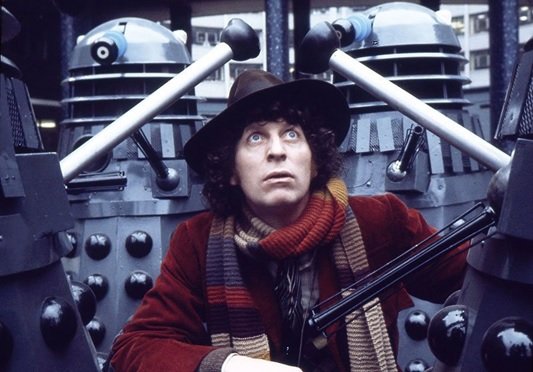
In Big Finish terms, Spare Parts is in a similar position where the Doctor is pre-destined not to halt the beginnings of the Cybermen – or steer their development to a better route – again, because of the sake of the long-standing association that the Cybermen have with the TV show.
Generally, a foe may escape (the Master, on many occasions) but the Doctor still foils the associated dastardly plan. These plans are generally foiled even on the occasions that it costs the Doctor a life, or the life of a companion.
And one for Captain Jack: the ‘win but at what cost’ scenario which was so well displayed in Torchwood: Children of Earth, where Jack sacrifices a member of his own family.
Taking the nod from Captain Scarlet, there is a way of bringing back Doctor Who’s jeopardy: have the Daleks or the Cybermen deal the Doctor a sound thrashing. Not just once, mind, but occasionally. This puts it in the back of the viewer’s mind that things don’t always go to plan. It also gives the Daleks or Cybermen their potency back.
But, arguably, that’s what Doctor Who needs anyway considering that, as happened at the end of The Eleventh Hour, the Doctor just needs to make him/herself known and the bad guys run. In storytelling terms, that’s not a million miles away from a street robber running away from the Incredible Hulk!
I think Gerry Anderson had it right with Scarlet: if the hero or heroine is all powerful, or all intelligent, then that powerful hero or heroine must have an Achilles’ heel; whether it be Kryptonite (Superman), drowning (David Dunn in H. Night Shyamalan’s Unbreakable), or in Captain Scarlet’s case, failure…
